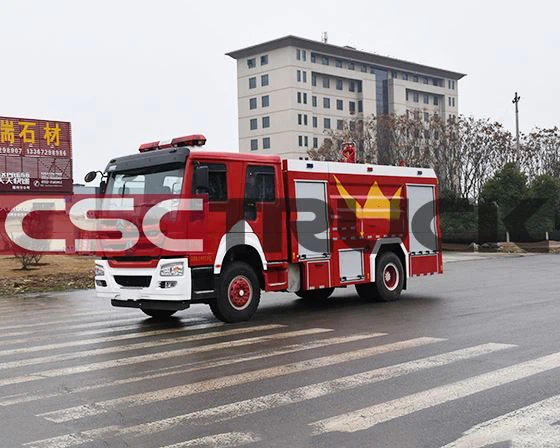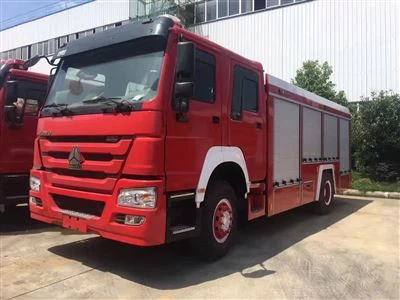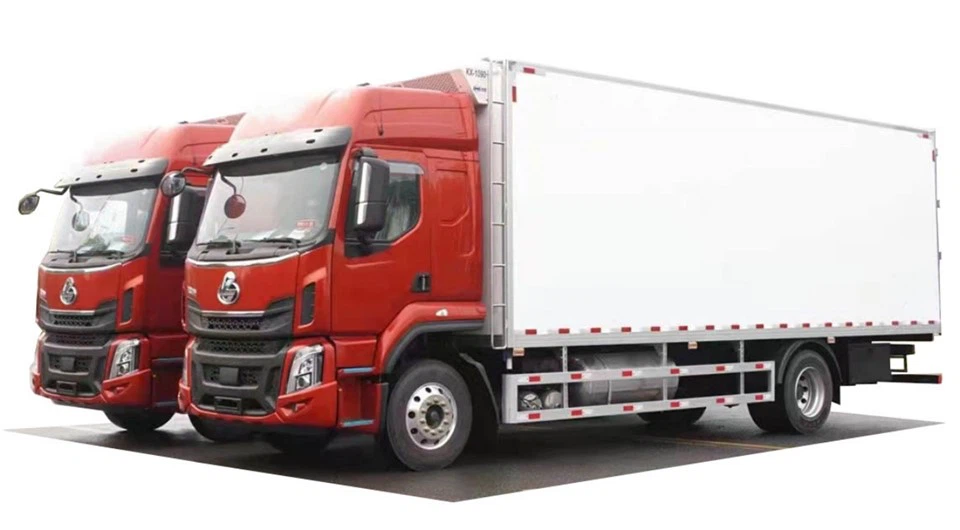Water Tanker Truck for Sale: Everything You Need to Know

When it comes to transporting water for agricultural, commercial, or municipal purposes, a water tanker truck is an invaluable asset. With numerous options available for purchase, understanding the features, types, and costs associated with these vehicles can help you make an informed decision. This comprehensive guide will cover everything you need to know about water tanker trucks for sale, including practical tips, examples, and answers to frequently asked questions.
What is a Water Tanker Truck?
A water tanker truck is a specialized vehicle designed to transport and distribute water. These trucks are commonly used in various applications, including agricultural irrigation, fire response, construction, and municipal water supply. Understanding the components of a water tanker truck can help you determine which model best meets your needs.
Key Components of a Water Tanker Truck
- Tank: The primary feature is the tank, which can vary in size (from a few hundred gallons to several thousand) depending on the application.
- Pump: Most water tanker trucks are equipped with a pump to facilitate the movement of water from the tank to the desired location.
- Chassis: A sturdy chassis is essential to support the weight of the water and tank.
- Hoses and Fittings: These are used for offloading water and may include various connections for different applications.
Types of Water Tanker Trucks
Water tanker trucks come in various types and configurations, catering to different needs and industries.
1. Standard Water Tanker Trucks
These trucks are commonly used for general water transportation purposes, featuring a simple design focused on efficiency.
2. Fire Fighting Water Tanker Trucks
Equipped with specialized pumps and hoses, these trucks are designed for fire suppression and can deliver water quickly to a fire scene.
3. Agricultural Water Tanker Trucks
Used primarily for irrigation, these trucks come with large-capacity tanks and equipment to facilitate field watering.
4. Municipal Water Tanker Trucks
Municipalities use these trucks for a variety of purposes, including filling reservoirs and providing drinking water to underserved areas.
5. Vacuum Water Tanker Trucks
These are designed to transport wastewater or sludge, commonly used in septic tank cleaning and environmental projects.
Factors to Consider When Buying a Water Tanker Truck
When looking for a water tanker truck for sale, several factors should influence your choice. Here are some critical aspects to consider:
1. Capacity
The capacity of the water tank is arguably the most crucial factor. Consider the volume of water you need to transport regularly. Common capacities include:
| Capacity (Gallons) | Common Use |
|---|---|
| 500 | Small agricultural operations |
| 1,000 | Residential/commercial uses |
| 2,000 | Municipal water delivery |
| 3,000+ | Large-scale agricultural or industrial operations |
2. Material and Build Quality
Water tanker trucks are typically made from steel, aluminum, or polyethylene. Steel tanks are durable but heavier, while aluminum is lighter and resistant to corrosion. Polyethylene is flexible and resistant to rust, making it suitable for specific applications.
3. Pump Type and Capacity
The pump is essential for efficiently moving water from the tank to the desired location. Examine the pump type (gasoline, diesel, or electric) and its capacity to ensure it meets your project requirements.
4. Vehicle Size and Maneuverability
Consider the geographical areas where the truck will operate. Smaller trucks can navigate narrow spaces, while larger trucks may require more considerable turning radius and space for maneuvering.
5. Compliance and Permits

Ensure that any water tanker truck you consider adheres to local regulations and obtain necessary permits, especially if the truck will be used for potable water transportation.
Where to Find Water Tanker Trucks for Sale
Finding a water tanker truck for sale can be straightforward if you know where to look. Here are some suggestions:
1. Online Marketplaces
Websites like eBay, TruckPaper, and Craigslist often list various water tanker trucks for sale. Filter your search by location and condition (new or used) to find what suits you best.
2. Specialty Dealers

Dealers specializing in commercial vehicles often carry a selection of water tanker trucks and can offer warranties and maintenance services.
3. Auctions
Government and commercial auctions can feature water tanker trucks at competitive prices. Check for upcoming auctions in your area, and be aware of the bidding process.
4. Manufacturer Websites
Some manufacturers sell directly to customers and may have a range of new models available for purchase. Manufacturer websites often provide detailed specifications and features.
Tips for Purchasing a Used Water Tanker Truck
If you’re considering a used water tanker truck, there are essential steps to ensure you make a wise investment:
1. Inspect for Damage
Examine the truck and tank for signs of rust, leaks, or structural damage. Check both the exterior and interior thoroughly to assess the condition.
2. Request Maintenance Records
A well-documented maintenance history adds credibility. Check for regular oil changes, pump maintenance, and inspections.
3. Test the Pump
Before finalizing the purchase, test the pump to ensure it functions correctly, and the tank can hold water without leaking.
4. Verify Regulations
Ensure the used truck complies with current regulations, particularly if it is used for potable water transportation.
Cost of Water Tanker Trucks
The cost of a water tanker truck can vary based on several factors, including its size, type, condition (new vs. used), and additional features. Here’s a general guideline on pricing:
| Type | Price Range (New) | Price Range (Used) |
|---|---|---|
| Standard | $25,000 – $100,000 | $10,000 – $50,000 |
| Fire Fighting | $50,000 – $150,000 | $20,000 – $80,000 |
| Agricultural | $30,000 – $120,000 | $15,000 – $60,000 |
| Municipal | $40,000 – $200,000 | $25,000 – $100,000 |
Financing Options for Water Tanker Trucks
Purchasing a water tanker truck is a significant investment, and various financing options are available:
1. Traditional Bank Loans
Many banks offer loans for commercial vehicles with competitive interest rates. Prepare your business plan and financial documents for a smooth application process.
2. Equipment Financing
Specialized lenders provide equipment financing tailored to purchasing commercial vehicles, often with lower down payments.
3. Leasing Options
If your water transport needs are temporary, consider leasing instead of buying. Leasing options can provide flexibility with lower upfront costs.
4. Government Grants and Programs
Check for local, state, or federal programs that offer grants or incentives for purchasing vehicles for specific purposes, like agricultural enhancements.

Proper Maintenance for Water Tanker Trucks
Maintaining your water tanker truck will ensure its longevity and performance. Here are some maintenance tips:
1. Regular Inspections
Check the tank, pump, hoses, and fittings for damage and wear. Ensure that all components are functioning correctly, especially before significant use.
2. Clean the Tank
Regularly clean the tank to prevent algae or bacteria build-up, especially if transporting potable water.
3. Change Fluids
Regularly change the oil and coolant in the vehicle to ensure optimal engine performance and longevity.
4. Document Maintenance
Keeps detailed records of all maintenance checks and repairs for future reference and resale value.
Frequently Asked Questions (FAQ)
1. What is the average lifespan of a water tanker truck?
The average lifespan of a water tanker truck is between 15-20 years, depending on usage, maintenance, and overall care.
2. Can I use a water tanker truck for other liquids?
While water tanker trucks are designed primarily for water, specialized tanks can handle other non-corrosive liquids. Always check compatibilities before transporting other substances.
3. Do I need a special license to operate a water tanker truck?
Yes, depending on your location and the weight of the vehicle, you may need a commercial driver’s license (CDL) to operate a water tanker truck.
4. How much does it cost to insure a water tanker truck?
Insurance costs can vary widely based on factors like value, usage, and location but generally range from $1,000 to $3,000 annually.
5. What are the most reliable brands for water tanker trucks?
Some reliable brands include Freightliner, Kenworth, Peterbilt, and Isuzu, known for their durability and performance in commercial vehicles.
6. How do I ensure my water tanker truck complies with regulations?
Review local and federal regulations on water transportation, including permits and inspections. Compliance is critical for safe and legal operation.
